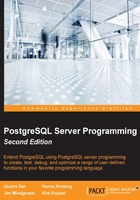
Licensing
About 2 months after Oracle bought MySQL, they announced a plan that divided the development into two camps: a MySQL community edition and a professional version. The community edition would no longer gain any new features, and the professional version would become a commercial product.
There was a vast and thunderous sucking sound in the open source community, as they thrashed wildly about to find a new platform for Free and Open Source Software (FOSS) development.
Oracle immediately (in about 2 weeks) countermanded the order and declared that things will stay as they were for the indefinite future. Those with short memories, forgiving hearts, or who just weren't paying attention went on about their business. Many other open source projects either switched to PostgreSQL or suddenly grew PostgreSQL database support.
Today, we have MySQL and MySQL Enterprise Edition. If you want backup, high availability, enterprise scalability, and the MySQL Enterprise Monitor, you now have to pony up some dough. Capitalism is fine, and corporations have a right to charge money for their services and products in order to exist. But why should you, as a project manager or developer, have to pay for something that you can get for free?
Licensing is all about continued product availability and distribution. The PostgreSQL licensing model specifically states that you can have the source code, do anything with it, redistribute it however you jolly well please, and these rights extend indefinitely. Try to get this deal with a commercial vendor.
As a corporate developer, PostgreSQL wins the legal battle for risk management hands down. I have heard the argument "I want to go with a commercial vendor if I need someone to sue." I will encourage anyone who considers it a good argument to do a little research about how often these vendors have been sued, how often those suits were successful, and what the cost of court was for that success. I think you'll find that the only viable option is not to have the battle.